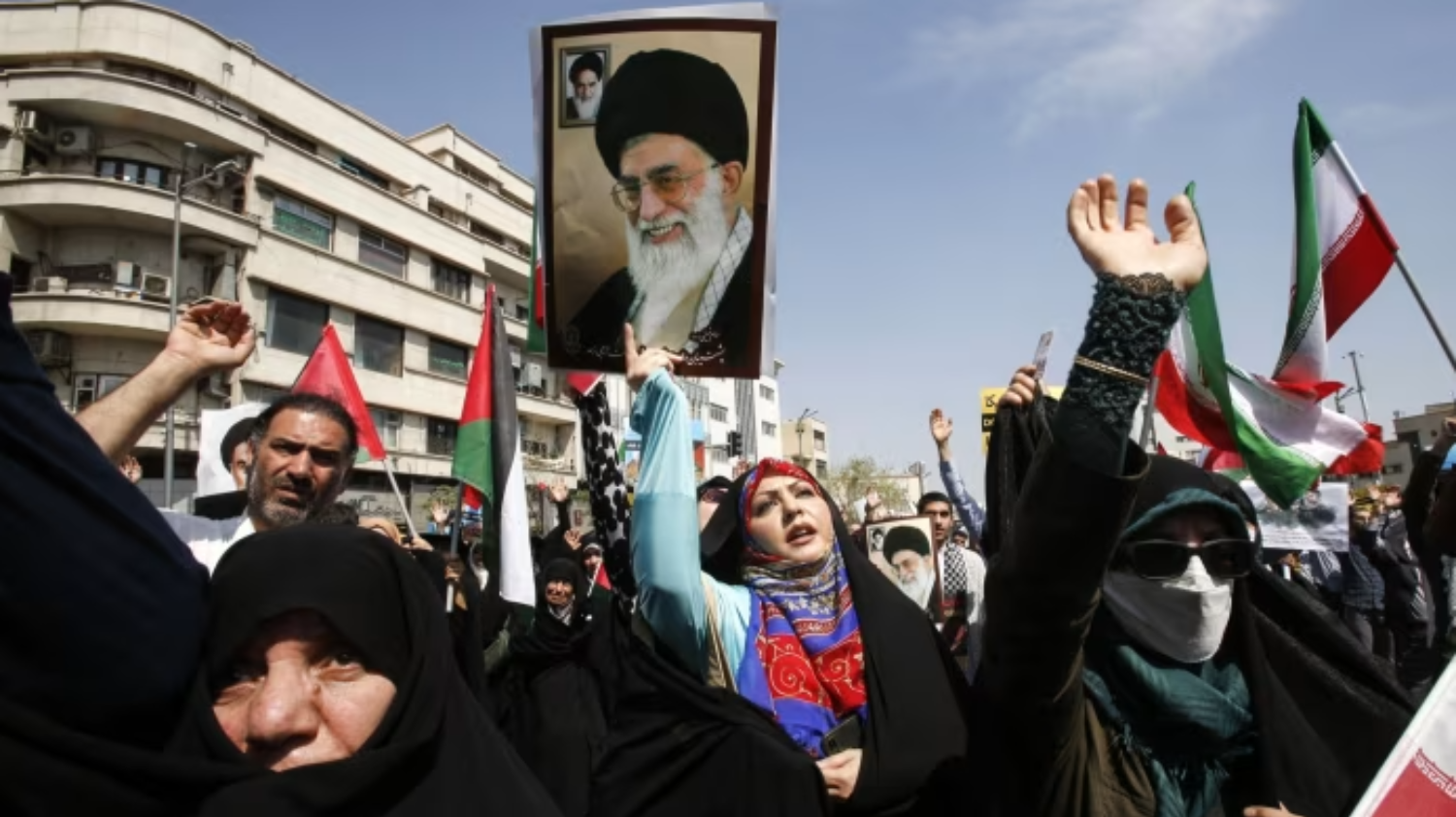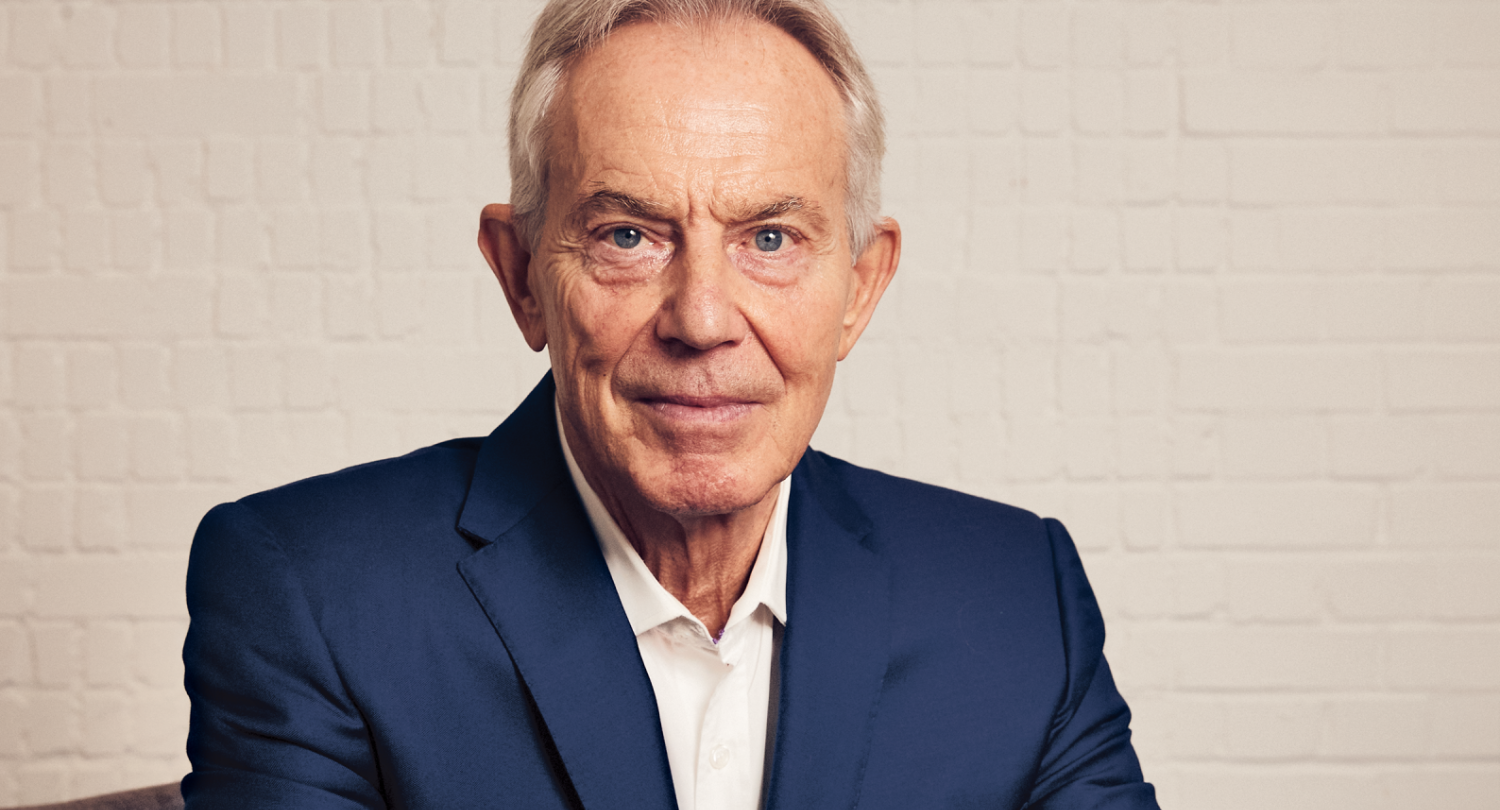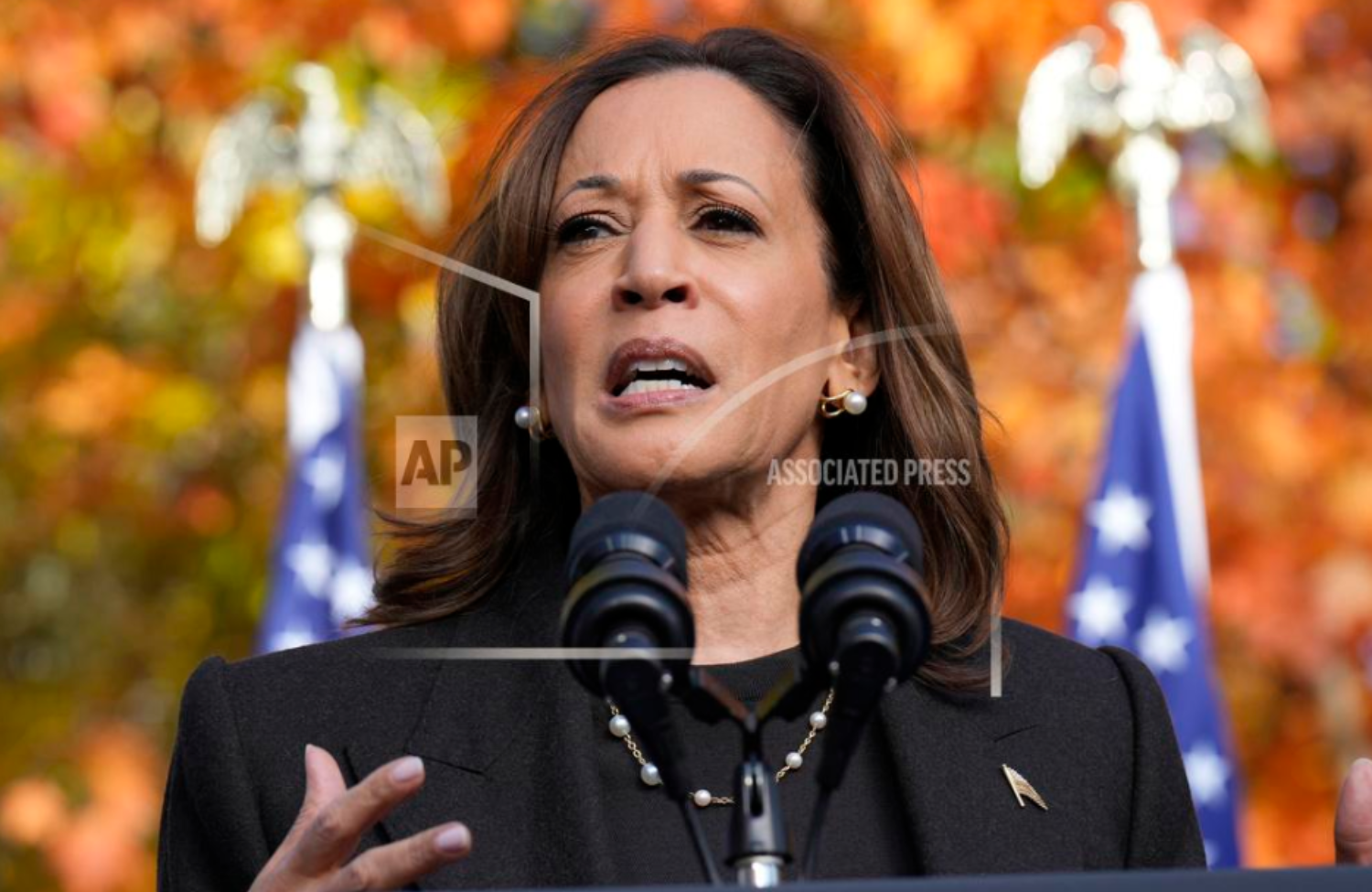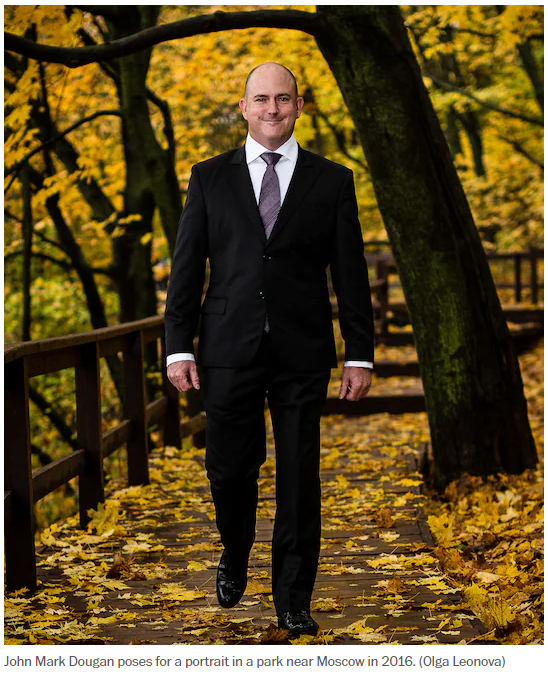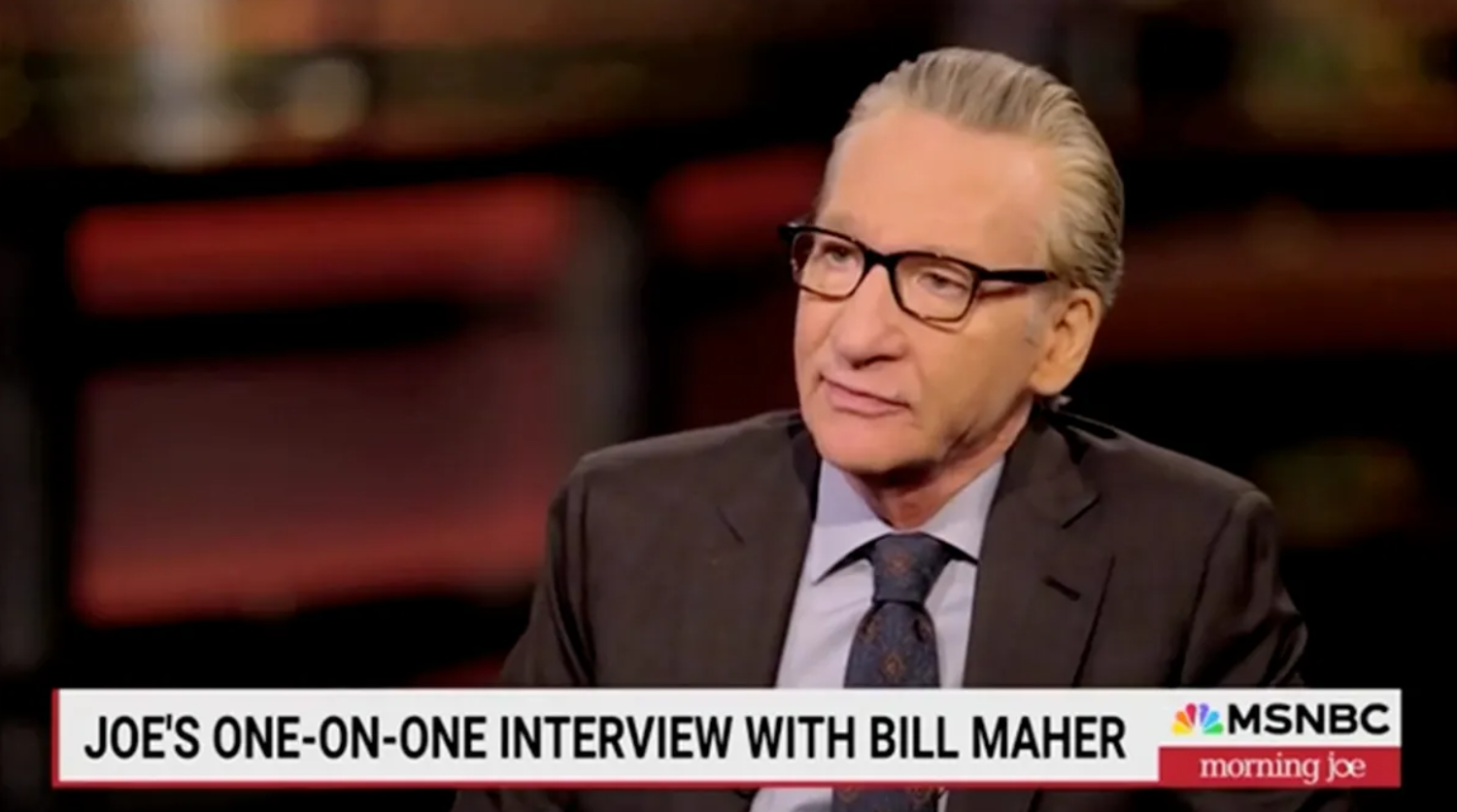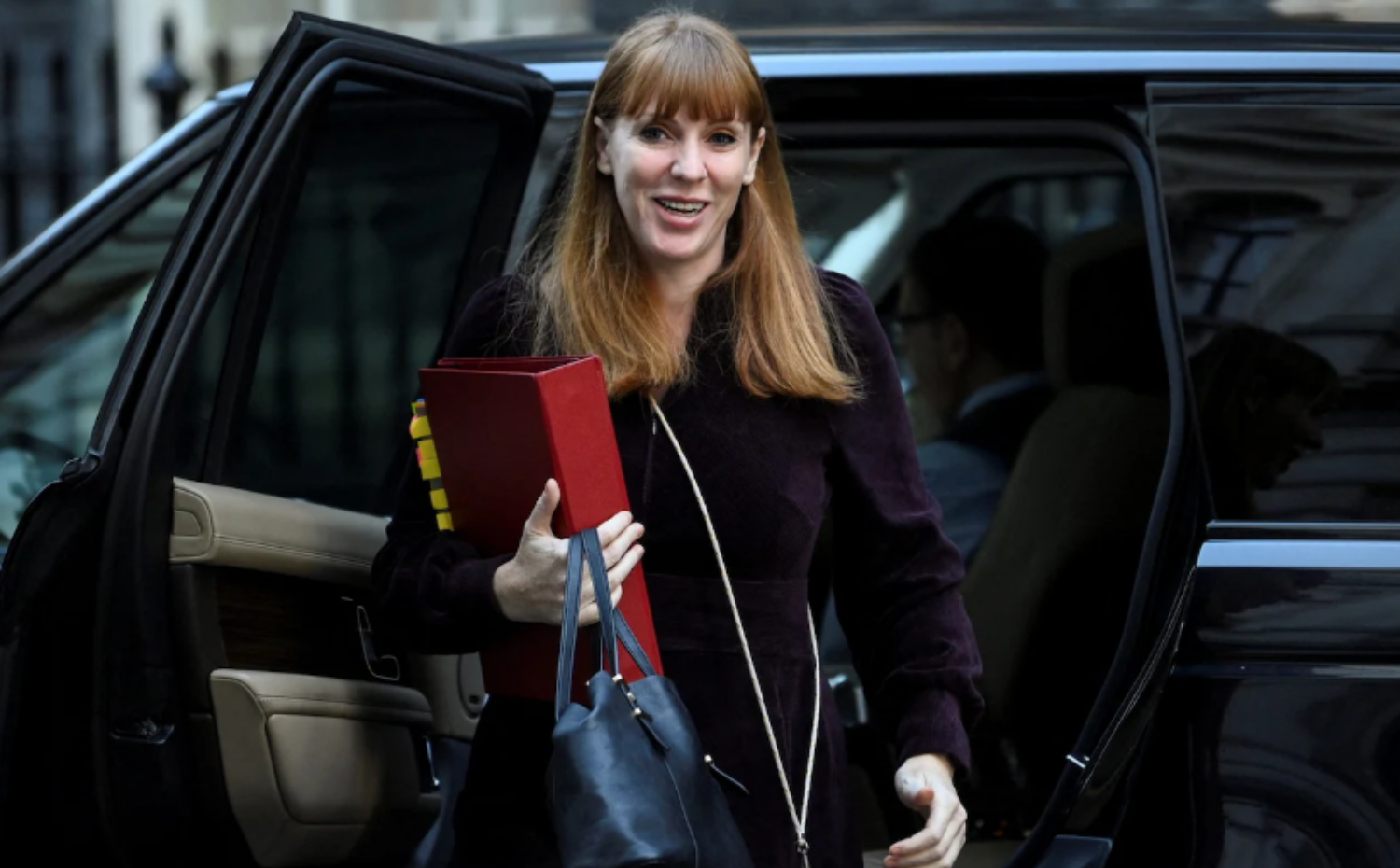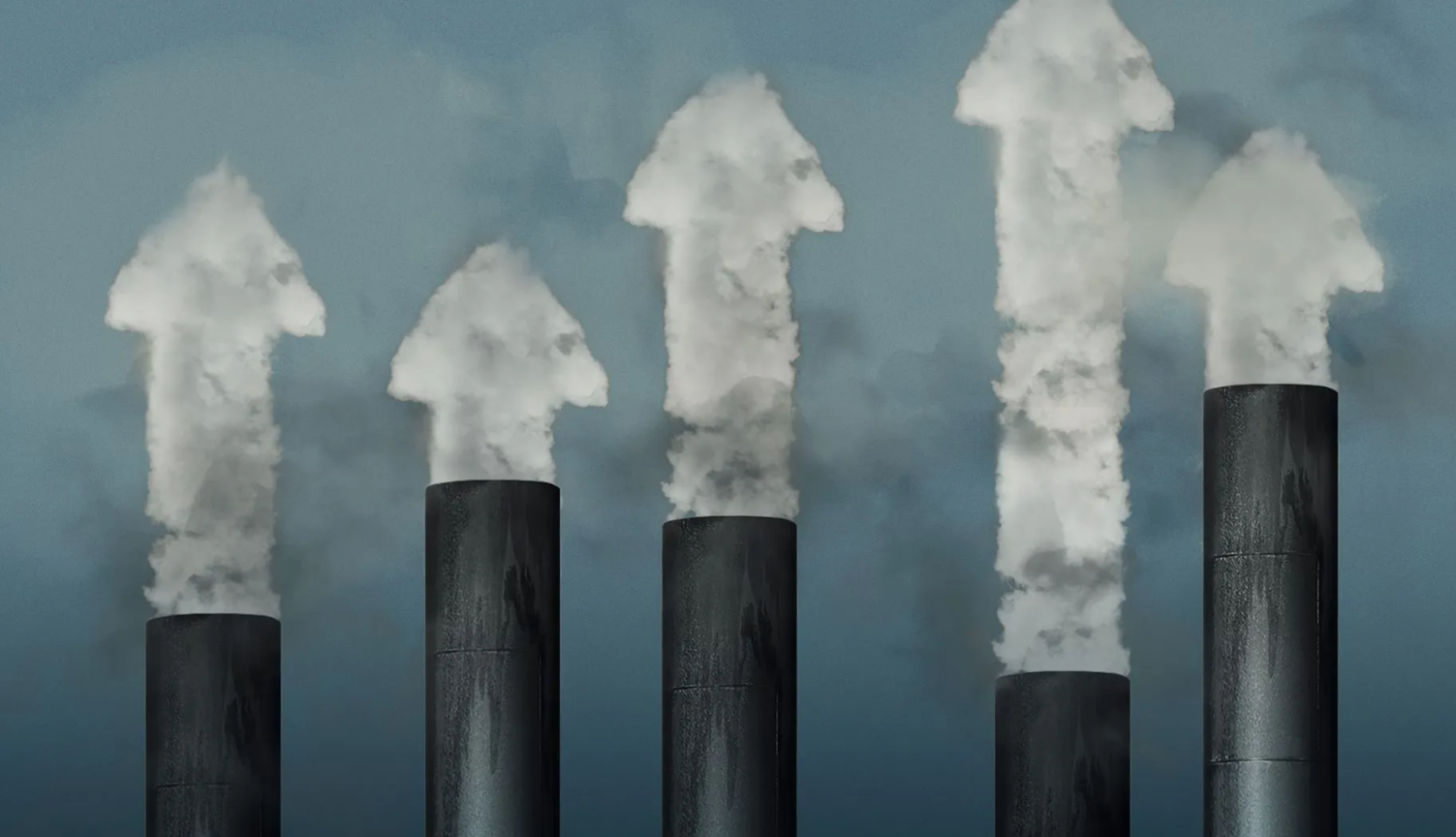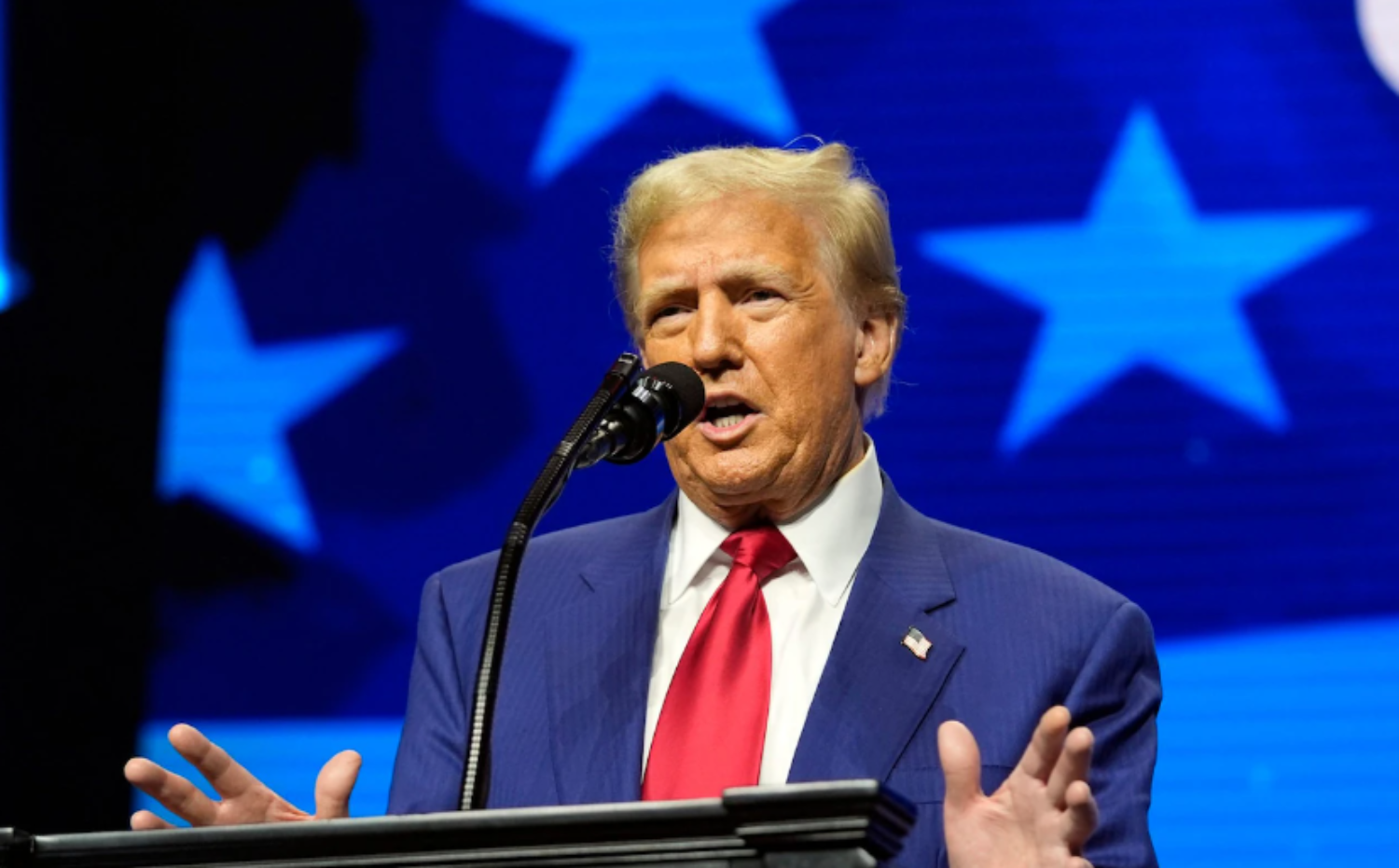-
Posts
10,790 -
Joined
-
Last visited
Content Type
Events
Forums
Downloads
Quizzes
Gallery
Blogs
Everything posted by Social Media
-
As former head of response and recovery for FEMA, I’ve witnessed firsthand the intensity and frequency of extreme weather events reaching unprecedented levels. The recent devastations wrought by Hurricanes Helene and Milton are painful reminders of how relentless and far-reaching these disasters are becoming. The numbers speak clearly—during my tenure, severe weather triggered disaster declarations every three days on average; in 2024, that rate has jumped to nearly every other day. As natural disasters increase in scope and severity, so too does the onslaught of misinformation, a phenomenon that challenges effective disaster response and undermines public trust in agencies like FEMA. While conspiracy theories surrounding disasters are nothing new, their spread has reached alarming proportions, with falsehoods proliferated by influential public figures and on social media. Now, unsubstantiated claims circulate widely, alleging that disasters are orchestrated by the government or that FEMA’s funding is diverted to undocumented immigrants. These rumors are absurd and patently false, contradicting FEMA’s sole purpose of aiding communities before, during, and after disasters. FEMA’s administrator described the impact of these lies as “demoralizing” to both the communities they aim to serve and to the teams deployed in the field. Misinformation has tangible effects on disaster recovery. Imagine a family refusing critical FEMA assistance because they believe unfounded rumors that the agency will seize their property. Trust in FEMA and its personnel is eroded by these lies, causing unnecessary fear and hesitation among disaster survivors who are already enduring trauma and loss. In recent instances, survivors have even become political pawns, leading some to avoid much-needed aid out of distrust. In my years with FEMA, I have been alongside disaster survivors in their most vulnerable moments—immediately after fires, hurricanes, and other tragedies. The emotional toll is profound, often compounded by the loss of lives, homes, and memories. I was present in Lahaina, Hawaii, following the devastating Maui fire, when the air was thick with smoke and FEMA teams were carrying out the solemn task of identifying victims. The courage and humanity shown by these teams in such moments is beyond words, as they help families find solace amid unimaginable devastation. Sadly, the Lahaina fire was also shadowed by a flood of misinformation. International actors, motivated by a desire to sow division, amplified distrust in government by spreading false narratives. While there is yet no definitive evidence that misinformation around Hurricanes Helene and Milton was driven by foreign influence, history suggests that foreign adversaries will take any opportunity to exploit such crises. Even if the volume of misinformation declines after the election, many of these falsehoods will likely linger. In moments like these, leadership must transcend politics and put people first. True leadership is demonstrated in the aftermath of disasters like Hurricane Helene, where government at every level joins hands with nonprofits, philanthropies, and private sector partners to extend compassion and aid to fellow Americans. Officials across party lines have stood against the tide of misinformation to ensure that their communities receive the support and resources they need to recover. This commitment—this collective fight for truth and service to those in need—is the leadership our communities need most amid these challenging times. Based on a report from the Hill 2024-10-28
-
In a pivotal election that many viewed as Georgia’s defining moment on its path toward Europe, the ruling Georgian Dream party has claimed victory despite intense controversy and allegations of electoral fraud from opposition groups. With preliminary results showing Georgian Dream leading with 53% of the vote, based on 72% of ballots counted, the opposition decried the results, alleging manipulation and intimidation. "Georgian elections going absolutely Russian as regime thugs stuff ballot boxes then beat up a guy that tries to film it." Exit polls suggested a tight race, with two polls from Edison and HarrisX for pro-opposition TV channels projecting Georgian Dream would receive 40.9% and 42% of the vote, while the combined opposition had a slight majority. In contrast, Imedi TV, a pro-government station, indicated Georgian Dream had 56%. This discrepancy has fueled accusations that the central election commission (CEC), which had promised 90% of results within two hours of polls closing, may have delayed the count to favor the ruling party. Dritan Nesho of HarrisX criticized the CEC, stating, “The onus is on a government body to provide transparency required in an electoral process.” Nesho noted significant inconsistencies in precinct data, such as unusually high support for Georgian Dream in districts where the opposition’s support was expected to dominate. Georgia’s political fate has attracted international attention, as Moscow continues to view much of the former Soviet sphere as part of its domain. Russia’s interest was evident as Georgian Dream promoted a “pragmatic” approach toward Moscow, appealing to the Kremlin by promising a restrained foreign policy and accusing the opposition of trying to create a “new front” for Western interests in Russia’s ongoing conflict with Ukraine. Sergei Naryshkin, head of Russia’s Foreign Intelligence Service (SVR), accused the United States of plotting a “Colour Revolution” in Georgia, claiming that Western nations sought to influence the election outcome. For the opposition, however, the stakes go beyond mere political power. “This is the moment,” said Levan Benidze, an opposition supporter. “In future there may be no such moment. I know there are a lot of geopolitical risks—from Russia—but this could be the pivotal moment, a turning point.” Despite Georgian Dream’s claims of continued EU aspirations, the party’s “pragmatic” approach has raised doubts among citizens who believe that aligning with the West remains essential to Georgia’s democratic future. As final results are awaited, Georgia faces a period of tension, with opposition leaders and their supporters demanding a path that aligns more closely with European values and less with the influence of Moscow. Based on a report from the BBC 2024-10-28
-
In her first appearance on the campaign trail alongside Vice President Kamala Harris, former First Lady Michelle Obama delivered a powerful speech urging Americans to vote against the “dangers” posed by Donald Trump. Speaking in Michigan, a state that could sway the results of the upcoming election, Obama warned that the race was “too close” for comfort. Trump has made a direct appeal to Arab-American voters, whom he believes could sway the election in Michigan. The state is home to the “Uncommitted” movement, a group of voters who are critical of Trump but have withheld endorsement for Harris, citing dissatisfaction with her stance on Israel and Gaza. For these voters, a lack of firm policy commitment to a weapons ban in Gaza remains a sticking point. In contrast, many Democratic voters at the Kalamazoo rally appeared more focused on domestic issues, particularly the protection of abortion rights and their perception of Trump as a threat to democratic values. Kelly Landon, a Canton, Michigan resident, expressed that her main motivation in the election was to safeguard the rights of women to make their own choices and ensure the safety of her female family members. “For me, the health and safety of women and their right to live the way they want to live outweighs other issues,” Landon said, underscoring the priority she places on women’s rights. The close contest in Michigan reflects a broader national divide. While Harris holds a slim lead nationwide according to polling averages, Trump is leading in five out of seven key battleground states that could decide the election. With just days left until November 5, Michigan’s outcome remains uncertain, its voters split between concerns over foreign policy, economic promises, and deeply personal issues like reproductive rights. Based on a report from the BBC 2024-10-28
-
Thirteen former Trump administration officials issued a stark warning about the potential consequences of a second Trump presidency in an open letter on Friday. The group, comprising lifelong Republicans and previous high-ranking members of Trump’s administration, rallied behind John F. Kelly’s recent statements in which he suggested that Donald Trump’s leadership style could resemble a dictatorship if he returns to office. Kelly, a retired Marine general and Trump’s longest-serving chief of staff, recently shared with The New York Times that Trump had occasionally expressed admiration for Adolf Hitler and had questioned the loyalty of U.S. generals. “For the good of our country, our democracy, and our Constitution, we are asking you to listen closely and carefully to General Kelly’s warning,” the former officials wrote. Although they expressed shock at Kelly’s statements, they noted they were “not surprised.” They recalled Trump’s past actions and rhetoric, which they believe point to his “desire for absolute, unchecked power.” While the letter did not specifically claim that any of the signatories directly heard Trump speak favorably about Hitler, it emphasized that they had all “witnessed, up close and personal, how Donald Trump operates and what he is capable of.” The letter underscored the group’s shared view that the American people deserve a leader who would prioritize public interest over personal power. “The American people deserve a leader who won’t threaten to turn armed troops against them, won’t put his quest for power above their needs, and doesn’t idealize the likes of Adolf Hitler,” they asserted. This warning comes amid Trump’s increasingly combative rhetoric; he has described Democrats as “the enemy from within” and has suggested that the National Guard may need to be deployed to address potential internal threats if he wins office again. Signatories of the letter included notable figures such as Stephanie Grisham, former Trump White House press secretary; Olivia Troye, an adviser to former Vice President Mike Pence; and Anthony Scaramucci, who briefly served as communications director. Alyssa Farah Griffin, previously Pence’s press secretary; Sarah Matthews, a former deputy White House press secretary; and three former Homeland Security Department officials, including Kevin Carroll, Elizabeth Neumann, and Sofia Kinzinger, also lent their voices to the letter. The group’s appeal reflects deep concerns over what they describe as Trump’s “disdain for the American military” and his perceived affinity for authoritarianism. The letter’s release was organized shortly after Kelly’s comments appeared in *The New York Times* earlier in the week. According to Kelly, Trump’s understanding of history was limited, and he had tried to explain the troubling implications of speaking positively about Hitler. Still, Trump reportedly continued to make occasional remarks suggesting Hitler’s achievements. The former aides’ letter echoed Kelly’s sentiments, reinforcing the belief that Trump’s return to office would be characterized by a leadership style placing his personal power over democratic principles. The Trump campaign has not responded to the letter or Kelly’s remarks, leaving unanswered questions about the former president’s stance on the allegations raised by his former allies. Based on a report from the NYT 2024-10-28
-
A knife-wielding attacker reportedly shouting "Allahu Akbar" and "Long live Palestine" fatally wounded a Swiss tourist in a brutal attack in Algeria, leaving her three children and a friend devastated. The incident occurred on October 11 at the Scanner café terrace in Djanet, a popular tourist destination in southern Algeria. The woman, whose identity remains undisclosed, was attacked while seated with her family and a friend in the bustling city center of Djanet. The assailant, described as a young man from northern Algeria, approached and slit the woman’s throat. She was rushed to the hospital but succumbed to her injuries after losing significant blood, according to reports from Swiss broadcaster RTS. Although the exact motive remains unknown, witnesses stated that the attacker shouted "Allahu Akbar," which means "God is greatest," as well as “Long live Palestine” during the assault. Following the attack, the man quickly fled the scene. In response, Algerian authorities launched a sweeping manhunt, enlisting helicopters and distributing the attacker’s photo to the public. After an intense search, he was apprehended several days later. According to RTS, the man had previously attempted to assault another group of tourists at a local market on the same day but was repelled before he could cause any harm. Locals reported that he had been living in Djanet for six months and was dressed in the style of a "Tuareg," a nomadic ethnic group native to the Sahara. The incident was initially reported by Swiss media but did not gain widespread coverage until it was reported by French newspaper *Libération*. Switzerland's foreign ministry has since confirmed the tragic event, noting it is aware of “the violent death of a Swiss citizen on October 11 in southeastern Algeria.” Authorities also clarified that they have assisted the victim's children and her friend, arranging for their safe return to Switzerland. However, they refrained from disclosing additional details out of respect for the family’s privacy. Algerian authorities have chosen to stay silent on the matter, even advising locals to avoid posting or sharing information about the attack on social media. Reports suggest that this incident has dealt a heavy blow to Algeria’s ongoing efforts to boost tourism, particularly in the Sahara region. Djanet, known for its striking landscapes and cultural heritage, has recently been at the center of the government's promotional campaigns aimed at positioning Algeria as a tourist-friendly destination. Just last year, the country welcomed 2.5 million visitors—the highest figure in two decades—signaling progress for the tourism sector. Algeria’s push for increased tourism comes as the government actively works with ANEP, its media and advertisement agency, to promote the Sahara region as a safe, attractive destination. Despite Algeria’s push for tourism, the country’s past struggles with violence loom large. In the 1990s, Algeria experienced a bloody civil war following the electoral success of the Islamic Salvation Front (FIS), a group advocating for an Islamic state. Tensions escalated as the FIS clashed with government forces, igniting a conflict that left tens of thousands dead, with Islamist groups bearing much of the responsibility for the casualties. Although Algeria has made strides in stabilizing and reviving its tourism sector, incidents like the recent tragedy in Djanet reveal the challenges that persist as the nation attempts to reshape its image on the global stage. Based on a report from the Daily Mail 2024-10-28
-
In central London, tensions escalated as thousands of Tommy Robinson supporters marched in what was branded the "Uniting the Kingdom" protest, facing off against a large gathering of anti-fascist counter-protesters. The Metropolitan Police, alongside British Transport Police and other forces, implemented significant security measures, including barricading Parliament Square’s statue of Winston Churchill, as well as the Cenotaph on Whitehall, to prevent damage. Officers also created a “sterile zone” along Whitehall to separate both camps, hoping to limit direct confrontation. Robinson, a far-right activist known legally as Stephen Yaxley-Lennon, had organized the rally to rally supporters. The gathering moved from Victoria Station toward Whitehall, where pro-Robinson demonstrators waved Union Flags and banners, some of which displayed inflammatory slogans. Robinson supporters chanted, “Oh Tommy, Tommy,” “We want Starmer out,” and provocative phrases, while others held signs referencing controversial topics like migration and cultural grievances. Demonstrators displayed a massive banner reading “The Rape of Britain” alongside images of political figures including London Mayor Sadiq Khan, former Prime Minister Rishi Sunak, and Labour leader Sir Keir Starmer. Other banners demanded the return of deportation policies and criticized asylum programs, while some attendees wore badges commemorating Peter Lynch, a man who died in custody after being jailed for verbally assaulting police officers. Yet, Robinson himself did not attend the march, as he was held in custody following his refusal to provide a phone access code under Schedule 7 of the Terrorism Act 2000. Robinson’s absence fueled frustrations among some demonstrators, with supporters calling for his release. The activist is also due in court for an ongoing case regarding alleged breaches of a High Court order that prevents him from repeating libellous claims against a Syrian refugee. Nearby, tens of thousands rallied in a counter-protest organized by Stand Up To Racism, which had called for a massive anti-fascist turnout. Anti-racist demonstrators gathered near Piccadilly Circus and filled the northern end of Whitehall, many holding placards with slogans like “Stop the Far Right” and “No to Islamophobia.” Trade unions, community groups, and activists brought banners from the National Education Union (NEU), RMT, and Fire Brigades Union, with Palestinian flags also present in the crowd. Daniel Kebede, general secretary of the NEU, addressed the crowd, saying, “I was a teacher. When I lined children up for dinner – black, white, Jewish, Muslim – do you know what they did? Hold hands. Our children show us the type of future we all want to see. Let’s stand up to the racists, and build a society fit for all our children.” Arrests were made at both demonstrations. Police apprehended two individuals from Robinson's march for public order offences, including a racially aggravated incident. Among the counter-protesters, one woman was initially detained for assault but later released after providing her information, and another arrest occurred when an officer was assaulted at The Mall. Additional arrests followed, including one for a racist comment directed at a police officer. Stand Up To Racism estimated that Robinson’s march attracted around 25,000 attendees, while 20,000 joined the counter-protest. This rally and counter-protest follow a July demonstration by Robinson supporters, which also attracted tens of thousands, with reports of Islamophobic chants. Robinson has a long history with far-right movements, having formerly been a member of the British National Party and founding the English Defence League. Based on a report from the Daily Telegraph 2024-10-28
-
Long before he became a household name, South African-born Elon Musk began his entrepreneurial journey in the United States with a dream and a tenuous legal footing. Musk, now a vocal supporter of stricter immigration policies and a major donor to former President Donald Trump, once navigated the complexities of immigration law himself. According to former associates, court records, and documents obtained by *The Washington Post*, Musk worked without legal authorization in his early career, helping to establish what would later become the highly lucrative company Zip2. In 1995, Musk arrived in Palo Alto, California, on a student visa after enrolling in a graduate program at Stanford University. However, he quickly decided against pursuing his studies, opting instead to build his tech startup. Leon Fresco, a former Justice Department immigration litigator, explained that foreign students are not legally permitted to work on business ventures if they have left their studies, even if they are unpaid. Despite his ambitious pursuit of a tech empire, Musk lacked the legal basis to work in the United States. Zip2, initially known as Global Link Information Network, received substantial venture capital funding in 1996, including a $3 million investment from Mohr Davidow Ventures. However, the funding came with a stipulation: Musk, his brother Kimbal, and another associate needed to secure legal work status within 45 days, or the firm would be able to withdraw its investment. Derek Proudian, a Zip2 board member and later its CEO, recalled that the board’s priority was “We don’t want our founder being deported.” Proudian and other investors feared Musk’s precarious immigration status could derail the company’s prospects for growth and eventual public offering. Throughout his career, Musk has often portrayed his immigrant experience as one marked by personal sacrifice and resilience. He has even referenced the gray legal area he operated in at the time, once joking about it in 2013. In a 2020 podcast, he stated that he was “legally there” but working in a “student work” capacity after deferring his Stanford enrollment. However, legal experts and immigration laws at the time indicate that Musk, without proper status, should have left the United States immediately upon withdrawing from Stanford. His decision to stay and build Zip2 was technically unauthorized. In a rare admission in 2005, Musk disclosed in an email to Tesla co-founders that he had no legal right to remain in the country when founding Zip2. He explained that applying to Stanford had been his way to solve both his need for legal status and his financial limitations. “Actually, I didn’t really care much for the degree,” Musk wrote in the email, “but I had no money for a lab and no legal right to stay in the country, so that seemed like a good way to solve both issues.” This early chapter of Musk’s career highlights the contradictions between his current stance on immigration and his own past. Recently, he has used his social media platform X (formerly Twitter) to amplify Republican viewpoints on “open borders” and undocumented immigration, sharing these with over 200 million followers. However, his immigrant story reveals a more complex narrative. His brother Kimbal has also openly spoken about their experiences as immigrants without legal status, calling it a testament to the challenges talented foreigners face under the current U.S. immigration system. “We were illegal immigrants,” Kimbal Musk said, summarizing his experience as part of a broken system. Elon Musk’s journey from an immigrant without legal status to one of America’s most successful tech figures underscores both the obstacles and opportunities present in the U.S. for ambitious newcomers. The story of Musk’s early struggles complicates his present-day advocacy for restrictive immigration policies, highlighting an irony that the world’s wealthiest person—and one of America’s most influential immigrants—began his career on uncertain legal ground. Based on a report from the WP 2024-10-28
-

Israel Hamas War the Widening Middle East Conflict
Social Media replied to Social Media's topic in The War in Israel
Again, posts from @Neeranam removed for blatant trolling, off topic deflections, unsubstaniated claims. Any more of the same will result in an instant posting suspension. -
In a significant show of support for Vice President Kamala Harris’s presidential campaign, global superstar Beyoncé endorsed Harris at a rally in Houston focused on abortion rights. This marks a noteworthy political statement from Beyoncé, nearly seven months after Harris publicly praised the singer’s latest album, *Cowboy Carter*, saying it “redefined a genre and reclaimed country music’s Black roots.” In a city already buzzing with anticipation, Beyoncé’s appearance with longtime friend and fellow Destiny’s Child member, Kelly Rowland, underscored the importance of the moment. Beyoncé and Kelly Rowland take the stage at the Kamala Harris rally in Houston The endorsement from Beyoncé follows another high-profile support Harris recently received from Taylor Swift in September, strengthening Harris’s base in the music community and potentially amplifying her reach among younger voters. A recent poll from the New York Times and Siena College, released just before Beyoncé’s endorsement, showed Harris tied with former President Donald Trump in the popular vote at 48% each. With Beyoncé’s influence, some wonder if her endorsement might sway undecided voters in Harris’s favor and impact the tight race heading into Election Day. Based on a report from USA News 2024-10-26
-
Comedian Joe Rogan released his highly-anticipated sit-down with former President Donald Trump on Friday night, just hours after they recorded it in Austin, Texas. The interview, released on “The Joe Rogan Experience” YouTube channel, is two hours and fifty-eight minutes long. It drew nearly 300,000 views less than 30 minutes after it went up. Trump begins by discussing his “two different lives,” referring to his time as a businessman and host of “The Apprentice,” and his subsequent foray into politics in 2015. Based on a report from the NYP 2024-10-26
-
Israel confirmed that had launched "precise strikes on military targets in Iran" early Saturday morning local time. The Israel Defense Forces said the strikes were in response to "months of continuous attacks" from Iran. On Oct. 1, Iran launched nearly 200 ballistic missiles at Israel. The initial strike targeted a barracks or office and a weapons depot near Tehran, two senior Arab officials told NBC News. In response to months of continuous attacks from the regime in Iran against the State of Israel—right now the Israel Defense Forces is conducting precise strikes on military targets in Iran. The regime in Iran and its proxies in the region have been relentlessly attacking Israel since October 7th—on seven fronts—including direct attacks from Iranian soil. Like every other sovereign country in the world, the State of Israel has the right and the duty to respond. Our defensive and offensive capabilities are fully mobilized. We will do whatever necessary to defend the State of Israel and the people of Israel. Based on a report from NBC | X | 2024-10-26
-
In a recent interview with *Newsweek*, former U.K. Prime Minister Sir Tony Blair underscored the threat he believes Iran poses to Middle Eastern stability, identifying the country as a major source of regional unrest. Blair, who has remained actively engaged in Middle Eastern affairs since his time in office, stated that a key priority should be ensuring that Iran never acquires nuclear weapons. He argued that Iran’s influence across the region, particularly through proxies like Hamas in Gaza and Hezbollah in Lebanon, has fueled violence and unrest. Blair's remarks come in light of Israel’s recent attacks on Hamas and Hezbollah following the tragic events of October 7, 2023, which marked the deadliest assault on Jewish people since the Holocaust. A central figure in British politics for over a decade, Blair led the Labour Party beginning in 1994 and served as the U.K. Prime Minister from 1997 to 2007. His time in office was marked by significant events, including the Iraq War, a decision that remains controversial due to the absence of weapons of mass destruction, which had been the war’s primary justification. Although Blair faced criticism for potentially misleading Parliament, Sir John Chilcot, who led a thorough inquiry into the matter, later clarified in testimony that he did not find Blair had intentionally deceived the public or Parliament with falsehoods. Among Blair’s achievements were the Good Friday Agreement, a milestone in the Northern Ireland peace process, and his leadership in humanitarian interventions in Sierra Leone and Kosovo. After his term, Blair continued to focus on international issues, serving as the special envoy for the Quartet on the Middle East, an organization comprising the United Nations, the United States, the European Union, and Russia, tasked with mediating the Israeli-Palestinian peace process. Blair held this role until 2015. In recognition of his contributions, particularly his alliance with the United States, Blair was awarded the Presidential Medal of Freedom by former President George W. Bush in 2009. Blair’s recent comments reflect his enduring commitment to a secure and stable Middle East, urging the U.S. to take definitive steps to prevent Iran from becoming a nuclear power. Based on a report from Newsweek 2024-10-26
-
The Trump campaign is expressing a cautious optimism regarding Donald Trump’s chances of winning the 2024 presidential election, fueled by encouraging early voting numbers that suggest a potential victory over Vice President Kamala Harris. Campaign officials have noted that, although it is "too early to declare victory," initial returns in key states look more promising than in both the 2016 and 2020 elections. An adviser on a campaign call stated, "Overall, both nationally and in battleground states, we are seeing strong returns for Republicans so far. From where we’re sitting right now, things look pretty good. Encouraging signs across the board. The voter registration gains in all the partisan registration states have been tremendously in our favor." The data the campaign is seeing includes an increase in registered Republican early voters in critical swing states like Arizona, North Carolina, Nevada, and Pennsylvania, where numbers are up by double digits compared to 2020. Additionally, mail-in ballots—a format often favored by Democrats—are reportedly down significantly from four years ago in Pennsylvania, and reduced by 79% in Georgia and 25% in Michigan. These numbers may indicate that Democrats are not turning out for Harris as they did for Biden in 2020. The Trump team is also seeing what they call "sustained overperformance" in states like Virginia and Ohio, although the adviser clarified, "It’s certainly too early to begin declaring victory, but it is certainly worth pointing out that our share of the early vote is turning in the right direction." Adding to the campaign’s optimism are recent national polls from both the Wall Street Journal and CNBC, which show Trump ahead of Harris in the popular vote—a benchmark Republicans have not achieved in 20 years. Despite these favorable indicators, Trump has encouraged his supporters to vote early and in record numbers to ensure the election is "too big to rig." Karoline Leavitt, Trump 2024’s national press secretary, affirmed the campaign’s momentum, saying, "President Trump continues to dominate in poll after poll, Republicans have made massive voter registration gains, and we are far outperforming in our share of the early vote relative to two or four years ago across all battleground states." She added, "Voters know that Kamala Harris has destroyed our country, but President Trump will fix it — and that is why he is well-positioned for victory on November 5." Meanwhile, signs of apprehension are emerging within the Democratic Party, as former President Barack Obama and Harris’ campaign manager Jen O’Malley Dillon acknowledge that the race will be “tight.” During an event aimed at mobilizing Black voters in Pittsburgh, Obama expressed concerns about turnout, stating, "We have yet to see the same kinds of energy and turnout in all corners of our neighborhoods and communities as we saw when I was running." This comment also hints at polling data suggesting Trump may achieve a Republican high among Black voters, potentially breaking a 64-year record. Former President Bill Clinton also shared concerns in Arizona, noting Harris is "extremely vulnerable, more vulnerable than she deserves to be." NBC News recently reported on growing fears within the Harris campaign that key states like Michigan and Wisconsin could slip away, potentially mirroring Trump’s 2016 sweep of the “Blue Wall.” Some Democrats, including party insiders, have voiced dissatisfaction with Harris’ campaign strategy. A senior party figure commented, "They are not thinking ‘Blue Wall’ at all. They are just not thinking," in response to Harris spending time in Texas, a predominantly Republican state, to discuss abortion rights instead of focusing on crucial battlegrounds. Another insider criticized her campaign’s media approach, likening it to "a first-time congressional candidate running as a sacrificial lamb." The Trump campaign's current standing, paired with rising concerns among Democrats, hints at an unpredictable but highly competitive race as the election nears. Based on a report from the NYP 2024-10-26
-
In a recent interview, GOP strategist and former Mitt Romney adviser Stuart Stevens shared a bold prediction regarding Vice President Kamala Harris’s chances in the upcoming election. Speaking with *Vanity Fair’s* Joe Hagan, Stevens praised the Harris campaign’s strategy, describing it as "the best presidential campaign ever." He expressed confidence in her potential for a decisive victory, stating, “Harris is going to win fairly comfortably. I think Harris is gonna win by a larger margin than 2020. [Republicans are] gonna say this election was rigged, and the Republican Party is going to fail again. And it’s going to be very, very ugly.” Stevens highlighted the strategic balance Harris has maintained, navigating traditional campaign topics like the economy and border policies while also addressing what he considers the unusual nature of this race. “The Harris campaign has done a balance of dealing with these issues you would deal with in a normal race — economy, border — while reminding people that this isn’t remotely a normal race,” he said. Contrasting Harris’s approach, Stevens offered a critical view of former President Trump’s campaign strategy, which he characterized as unfocused and disruptive. According to Stevens, Trump’s campaign lacks a clear vision beyond instilling fear among voters. “There is no plan except voter intimidation,” Stevens stated, adding, “It’s a very chaotic campaign that has no focus.” The Republican strategist also criticized Chris LaCivita, a senior adviser to Trump and a figure known for his 2004 campaign tactics against former Secretary of State John Kerry. Stevens suggested that LaCivita’s campaign approach, especially policies targeting transgender individuals, reveals the Trump camp’s lack of substantive direction. Referring to LaCivita’s previous attacks on LGBTQ issues, Stevens said, “Well, the closest would be the trans policy attacks. But that’s a policy that was put in place when Trump was president by his own Bureau of Prisons,” referencing a 2018 Justice Department policy change that limited protections for transgender inmates in federal facilities. Stevens speculated on the motivation behind these tactics, stating, “There’s two ways to look at it: One, you can say, well, they’re doing it because it’s working; two, they’re doing it because they don’t know what else to do. I think it’s more the latter than the former.” With Election Day less than two weeks away, polling data indicates a tight race. According to *The Hill/Decision Desk HQ’s* polling index, Harris leads Trump by a narrow margin, holding 48.7 percent of voter support compared to Trump’s 47.7 percent. As both campaigns press forward, Stevens’s comments add fuel to an already intense election cycle that continues to shape up as a high-stakes and deeply polarized contest. Based on a report from the Hill 2024-10-26
-
Recently surfaced Russian documents reveal the strategic operations of a Moscow-backed network disseminating disinformation aimed at American voters. This trove of over 150 documents, reviewed by *The Washington Post*, showcases an intricate, coordinated effort by Russian intelligence to leverage deepfake videos and inflammatory content. The documents cover the period from March 2021 to August 2024 and offer a rare glimpse into the workings of a network described by researchers and intelligence officials as the most active source of Russian-originated fake news targeting Americans within the past year. One key player in this network is John Dougan, an American who allegedly collaborates with Russian intelligence. Dougan's network recently made headlines with a fake video that went viral, smearing Democratic vice-presidential nominee Tim Walz. This deepfake, identified as Russian-made by U.S. intelligence officials, garnered nearly 5 million views within 24 hours on X, as confirmed by Microsoft. According to McKenzie Sadeghi, a researcher with NewsGuard, Dougan’s operation has achieved unprecedented reach, amassing 64 million views on posts, articles, and videos since September 2023. “Compared with other Russian disinformation campaigns, Dougan has a clear understanding of what would resonate with Western audiences and the political atmosphere, which I think has made this more effective,” Sadeghi said. These documents also indicate Dougan's financial ties to a Moscow institute founded by Alexander Dugin, a far-right ideologue with substantial influence over Russian President Vladimir Putin's imperialist agenda. Often referred to as “Putin’s brain,” Dugin has been a critical figure in Russia’s revanchist ideologies and a driving influence behind its invasion of Ukraine. Evidence within these files includes records of direct payments from Khoroshenky, a Russian figure associated with Dugin’s circle, to Dougan’s Moscow bank account starting in April 2022. The records also reveal frequent meetings between Khoroshenky, Dougan, and another collaborator, Korovin. In response to these allegations, Dougan denied working as an operative for Moscow. He claimed to operate independently and dismissed the payments as nonexistent. “No one sends me money for anything,” he said, further explaining that he worked as an IT consultant for an American company and suggesting that the documents seen by *The Washington Post* were likely fabricated. He did, however, defend his controversial stance on the spread of information. “I will tell you hypothetically, if they were my sites,” he said, “then I am merely fighting fire with fire because the West is f------ lying about everything that’s happening. They are lying about everything.” As disinformation researchers and intelligence officials continue to assess the reach and impact of Dougan’s operations, the mounting evidence draws a clearer picture of Moscow’s sophisticated methods of influence over American political discourse, signaling an evolving landscape of foreign interference through digital manipulation and misinformation campaigns. Based on a report from the WP 2024-10-26
-
A Metropolitan Police officer has been dismissed without notice after a disciplinary panel found she had posted offensive comments online targeting Jewish and non-Muslim people. Ruby Begum, 29, faced a police misconduct hearing where she admitted to using terms like “dirty Zionists” while serving as a special constable. Despite Begum's admission of using such language, she denied that her actions constituted gross misconduct. Begum admitted to using the term “kuffar” to describe non-Muslims and acknowledged making offensive remarks related to the September 11 terror attacks. After reviewing her case, the Met's misconduct panel concluded that her actions did indeed amount to gross misconduct, citing that Begum had violated standards of professional behavior related to equality and diversity. The panel was informed that she posted around 25,000 tweets on her account, dating from 2013 to 2019. The hearing revealed that Begum’s Twitter posts included derogatory comments about Jewish people, such as “Dirty Zionists. Hell is waiting” and “Zionists have no heart.” When asked to explain these posts, Begum stated that her comments were intended to criticize the Israeli government in relation to Palestinian casualties, not to offend Jewish individuals. She argued, “If I was describing Jewish people, I would just say Jewish people. I have nothing against Jewish people. I have no hate towards that group.” Begum also explained her posts on the September 11 attacks, asserting that her remarks were a reaction to the Islamophobic abuse that emerged after the attacks rather than an attempt to disrespect those who had died. During the hearing, Begum argued that her actions were a case of simple misconduct, suggesting that a final warning would be an appropriate outcome. Reflecting on her posts, Begum described her past behavior as “silly” and immature, attributing it to her younger self nearly a decade ago. She told the panel, “I was silly. It was almost 10 years ago and I’ve developed a lot through the police. It looks bad on paper, and I can see how immature I was … I made a mistake which I’m sorry for.” She shared that she had been raised in a Muslim household in East London and admitted that her “narrow-minded” perspective at the time was shaped by her upbringing in a “bubble.” However, the panel viewed her posts as “appalling,” “derogatory,” and “abusive.” The panel also dismissed Begum’s claims of immaturity, emphasizing that she was an adult and an active member of the police force at the time. Additionally, it noted that Begum had participated in two rounds of equality and diversity training, first in 2014 when she became a special constable and again in 2016 after becoming a full-time constable. Chief Superintendent Colin Wingrove from the Met expressed his stance on the case, stating, “There is absolutely no place within the Met for anyone with racist or otherwise hateful attitudes.” He added, “We are working hard to build a culture where anyone can feel welcome and thrive. Those who undermine these goals have no place in the organization. They are not suitable to serve Londoners and will feel the consequences.” As a result of the hearing, Begum has been added to the barred list maintained by the College of Policing, preventing her from rejoining the police force in the future. Based on a report from the BBC 2024-10-26
-
Comedian Bill Maher expressed his concerns about Vice President Kamala Harris’s ability to appeal to undecided voters, cautioning that she must prove she’s not “a stealth version of the worst excesses of the left.” Speaking to MSNBC’s Joe Scarborough on “Morning Joe” in an interview that aired Thursday, Maher emphasized that Harris’s main challenge is dispelling the suspicion that she aligns with the extreme left. “Kamala’s big, I think, challenge here to win over the undecided voters, is to convince them that she’s not part of what they suspect she might be, sort of a stealth version of the worst excesses of the left,” Maher said. He also criticized the overall political landscape, noting, “I am tired of the extremes and the extremists who dominate the debate. They have the megaphone, and we hear them more, but I don’t think they represent what most people in the country talk about.” The Trump campaign has capitalized on these perceptions, attempting to depict Harris as aligned with far-left policies. Former President Donald Trump has frequently referred to her as “Comrade Kamala,” further fueling suspicions with a fabricated image purportedly showing Harris at a communist event. The campaign has continued its attacks by highlighting Harris’s past support for policies such as “Medicare for All,” a ban on fracking, and government-funded gender-affirming surgeries for inmates and detained migrants. While Harris has since moderated her stance on many of these issues, her opponents continue to emphasize these progressive positions as evidence of her alignment with the left. In recent efforts to underscore her moderate credentials, Harris has garnered endorsements from notable Republicans, including former Representative Liz Cheney and her father, former Vice President Dick Cheney. These endorsements aim to signal her commitment to a bipartisan approach and to counter the narrative that she embraces the more extreme policies of the left. Last Friday on his HBO show, Maher, a frequent Trump critic, warned Democrats against relying on an “October surprise” to prevent a second Trump term. “We’ve gotten so used to thinking that there’s always an October surprise coming that when it doesn’t happen, it actually seems weird,” he said, suggesting that Democrats should focus on a strategy that doesn’t depend on last-minute developments. The race remains tight, particularly in key swing states such as Pennsylvania, North Carolina, and Wisconsin, where both Harris and Trump are fighting to secure undecided voters. With only 12 days left in this election cycle, Harris holds a slight lead over Trump of just 0.9 points in national polls averaged by The Hill/Decision Desk HQ, underscoring the competitiveness and uncertainty surrounding the final outcome. Based on a report from the Hill 2024-10-26
-
If he wins the upcoming presidential election, Donald Trump plans to eliminate diversity, equity, and inclusion (DEI) initiatives across both the federal government and private sector on his very first day in office. According to reports from the Wall Street Journal, Trump’s team has drafted a range of executive orders for this, intending to outlaw DEI programs and withdraw from the Paris climate accord. His goal, his allies say, is to address what he has called “anti-white racism,” an accusation he has repeatedly voiced. In a statement to Time magazine earlier this year, Trump said, “I think there is a definite anti-white feeling in this country, and that can’t be allowed.” Trump’s campaign has echoed this sentiment, asserting that all “staff, offices, and initiatives” tied to DEI or any “un-American policy will be immediately terminated.” However, this potential ban on DEI is likely to be met with significant resistance. The American Civil Liberties Union (ACLU) has announced plans to fight any DEI bans in court, according to a report from Axios in July. Trump’s stance on DEI aligns closely with a broader conservative movement encapsulated in Project 2025, a detailed policy document drafted by the Heritage Foundation. The 900-page document outlines strategies to reverse what the authors see as a “DEI revolution.” But Project 2025 has not been universally embraced even within Republican circles. Kamala Harris’s campaign has criticized it, leading Trump to distance himself from the document. Frustrated by the backlash it has sparked, he commented earlier this year that “some of the things they’re saying are absolutely ridiculous and abysmal.” Still, Project 2025 has had a profound influence on Trump’s policies. Although Trump’s aides have scoured the document to remove anyone associated with it from participating in his presidential transition team, at least 140 authors and editors of Project 2025 had served during his first term. Despite efforts to screen those involved with the document, some Trump allies argue it would be challenging to exclude all Project 2025-linked Republicans from playing roles in the White House or on the transition team. In addition to banning DEI programs, Trump is also poised to withdraw the United States from the Paris Agreement. This international climate change treaty requires member countries to reduce greenhouse gas emissions. During his previous term, Trump initiated the process to exit the treaty in 2017, although the formal withdrawal wasn’t completed until November 2020 due to delays from United Nations regulations. Following Trump’s departure, Joe Biden reversed the decision and re-entered the U.S. into the Paris Agreement on his first day in office, with the country’s reentry officially taking effect in February 2021. If Trump’s executive orders materialize, they will likely set off significant legal challenges and heated public debate. His plans to ban DEI initiatives and withdraw from international climate commitments represent a return to some of his more controversial policies from his first term, drawing support from certain sectors while sparking resistance from advocacy groups and government bodies alike. Based on a report from the WSJ 2024-10-26
-
The BBC faces significant scrutiny for its coverage of the Israel-Hamas conflict following a report authored by Danny Cohen, the broadcaster’s former director of television. The 60-page report argues that the BBC has “serious questions to answer” due to alleged repeated inaccuracies in its reporting of the ongoing war. Cohen, who held his position from 2013 to 2015, assembled the report based on research conducted by CAMERA U.K. and CAMERA Arabic, branches of the U.S.-based Committee for Accuracy in Middle East Reporting and Analysis (CAMERA). Alongside Baroness Ruth Deech, a former BBC governor and House of Lords member, Cohen co-wrote the report’s foreword, asserting that while errors can occur in journalism, the BBC’s “mistakes” consistently exhibit an anti-Israel bias. “The ‘mistakes’ are almost always in the anti-Israel direction,” they argue. They suggest that for Israel and the Israel Defense Forces (IDF), even concrete evidence often proves insufficient, while Hamas rarely has its claims rigorously scrutinized. The report details numerous alleged instances of inaccurate reporting on Israel’s actions in the conflict. It accuses the BBC of broadcasting “false and damaging claims about Israel’s conduct of this war” and producing what it describes as “misleading broadcasts and social media output.” It further references a separate study from earlier in the month by a group of lawyers and data scientists, which found that the BBC had violated its editorial standards over 1,500 times in its coverage of Israel, pointing to a pattern of “widespread anti-Israel bias.” The report also notes recent controversies involving the BBC’s handling of antisemitism. In June, more than 100 Jewish creatives signed an open letter accusing the BBC of double standards in its response to antisemitic remarks made by one of its contributors, following the BBC’s decision not to pursue any action. In response, the report recommends an independent inquiry into the BBC’s reporting practices related to the Israel-Hamas conflict. The complete findings and analysis by Cohen are available in the published report. Based on a report from Variety 2024-10-26
-
Angela Rayner, the Deputy Prime Minister and a known advocate for flexible working, is now encountering calls within her own department for a four-day work week without a reduction in pay. Over 500 civil servants at the Ministry of Housing, Communities, and Local Government have requested the right to work four days instead of five. This proposed change, often linked to improved work-life balance and reduced sick leave, has already seen successful trials in parts of the private sector and local government. The Public and Commercial Services (PCS) union, which represents these workers, argues that a four-day work week benefits both employees and employers. Fran Heathcote, PCS’s secretary general, stated, “A four-day week benefits both the employer and the employee. Employers offering a four-day week have better staff retention, find recruiting easier and lose less to sick days.” Heathcote emphasized that such a shift would allow workers more personal time, reducing burnout and potentially lowering care costs for employees with family obligations. This push comes at a time when Rayner is advancing the Employment Rights Bill, a piece of legislation designed to improve worker protections around flexible schedules, compressed hours, and the rights of those on zero-hours contracts. If the proposed reforms pass, employers would be required to accommodate requests for flexible or compressed work schedules unless a valid business reason is given to deny them. Despite Rayner’s advocacy for worker rights, the Housing Secretary is resisting the demand for a four-day work week in her department. A government spokesperson clarified, “It is not government policy or something we are considering,” firmly indicating the government's current stance on the issue. The demand for shorter work hours also comes as the Government tightens its stance on in-office attendance, with new directives requiring civil servants to spend at least 60 percent of their work hours in the office. This directive, recently emphasized by Cabinet Office permanent secretary Cat Little, seeks to ensure compliance with existing Whitehall guidelines. Additionally, the government is set to resume quarterly publications on civil servants’ work patterns, aiming to monitor remote work trends within the public sector. This data initiative highlights the growing emphasis on accountability in civil service working arrangements. Meanwhile, other officials have taken a more flexible approach. Business Secretary Jonathan Reynolds has previously stated that he does not prioritize location as long as the work is effectively completed. “I care about are they doing the job for me, not the location they are in,” he said, underscoring a different outlook within the government on where and how civil servants can best fulfill their roles. Based on a report from the Daily Telegraph 2024-10-26
-
A recent United Nations report warns that despite advances in clean technology, the world remains on a perilous path toward surpassing the climate targets set by the Paris Agreement. Issued as the “Emissions Gap Report” by the UN Environment Program (UNEP), the annual report highlights the disconnect between countries' emissions reduction plans and global climate targets. Disturbingly, it shows that this gap has seen little improvement since 2023. The report projects global warming to reach between 2.6°C and 3.1°C above pre-industrial levels, with the lower end of this range assuming the full implementation of emissions reduction commitments. The higher end reflects the trajectory of current policies, which suggests that warming could extend beyond the current century. Though these temperature differences may appear minor, the planet has already warmed by approximately 1.3°C, leading to severe and widespread impacts. These include increasingly frequent and intense weather events, rising sea levels, and shifts in precipitation patterns. Scientists have long cautioned that surpassing 1.5°C of warming risks triggering irreversible tipping points within the climate system. These could include the collapse of polar ice sheets and significant shifts in ocean currents. UNEP’s findings are stark: only a massive global effort to reduce emissions, particularly from the world’s 20 largest economies, would keep the world within the Paris Agreement’s goal of limiting warming to 1.5°C. “Climate crunch time is here,” stated UNEP executive director Inger Andersen. “We need global mobilization on a scale and pace never seen before — starting right now, before the next round of climate pledges.” She emphasized the urgency, noting, “The 1.5°C goal will soon be dead” without immediate action. Small island nations and countries most vulnerable to climate impacts see the 1.5°C target as essential for survival. The report underscores that keeping warming below 2°C would require emissions reductions of 28% from 2019 levels by 2030 and 37% by 2035. The likelihood of reaching the 1.5°C target is “virtually zero” unless countries not only meet their most ambitious commitments but also clarify their net-zero pledges, which are currently uncertain. Delays since 2019 now mean that, to reach the 1.5°C target, global emissions must fall by 7.5% annually through 2035. Limiting warming to 2°C would require an annual reduction of 4%. In contrast, emissions increased by 1.3% between 2022 and 2023. If major emitters like the U.S., China, India, and the EU delay cutting emissions further, they’ll face the need for even more drastic reductions over a shorter period. Although the size of the emissions gap has remained nearly unchanged since last year, every fraction of a degree in avoided warming helps to mitigate climate change’s most severe impacts. UNEP’s report clarifies that the technology exists to triple renewable energy capacity by 2030 and double global energy efficiency rates by the same year. Meeting these goals will demand an extraordinary, large-scale commitment, but UNEP emphasizes that the initial costs of such efforts would pay off by avoiding greater climate-related damages. UN Secretary-General António Guterres summarized the severity of the situation, saying, “We are teetering on a planetary tightrope.” Looking ahead, countries are due to submit their next round of emissions pledges before the COP30 summit in Brazil next year, which will include targets for 2035. Based on a report from AXIOS 2024-10-26
-
Morgan Stanley has taken a step towards advancing carbon removal technology through a new partnership with Climeworks, a Swiss company specializing in direct air capture (DAC) of carbon dioxide. This agreement, announced today, signals a shift in Wall Street's engagement with the emerging carbon capture sector, as financial institutions increasingly seek to purchase carbon removal credits to support climate goals. The financial details of Morgan Stanley's investment remain undisclosed, but the bank's commitment involves capturing 40,000 tons of CO₂ from the atmosphere over the duration of the partnership, which extends until 2037. This collaboration follows a similar $20 million investment from JPMorgan last year, underscoring growing enthusiasm among major financial players to invest in long-term solutions for carbon removal. Climeworks, known for its leading role in DAC technology, operates the world’s largest direct air capture plant, which opened this year in Iceland. With Morgan Stanley’s backing, the company aims to expand its technology, which focuses on efficiently capturing carbon dioxide from the ambient air and securing it for safe storage. According to Climeworks, this contract is its second-largest to date and is part of a broader effort to enhance DAC's impact. The company has also joined forces with the U.S. Department of Energy as a technology partner for Project Cypress Direct Air Capture Hub in Louisiana. Morgan Stanley’s move to invest in DAC aligns with its broader sustainability goals, such as achieving net-zero financed emissions by 2050 and mobilizing $1 trillion in sustainable finance by 2030. This investment marks an expansion in the bank’s portfolio of climate-oriented projects, showing a proactive stance on emerging technologies as part of its strategy to address climate impacts. Christoph Gebald, co-founder and co-CEO of Climeworks, noted, “By securing access to high-quality carbon removals now, companies position themselves ahead of the curve of future regulatory changes and competitive pressures.” However, the 40,000 tons of CO₂ targeted by Morgan Stanley's agreement represent only a small fraction of emissions at a global scale. This quantity equates to the annual carbon emissions produced by roughly 9,000 traditional gasoline-powered cars in the U.S., according to the Environmental Protection Agency. Although this number is modest, it reflects the current scale of DAC technology, which is still in its early stages. DAC is focused on removing residual CO₂ already present in the atmosphere, complementing efforts to reduce ongoing emissions by other means. Morgan Stanley’s investment illustrates the financial sector’s increasing willingness to engage with innovative climate solutions that, while still in their infancy, hold the promise of supporting long-term climate stability. As Climeworks continues to scale its DAC technology, partnerships like these highlight a growing intersection between finance and technology in the fight against climate change, one that is likely to evolve as regulatory frameworks and environmental priorities advance. Based on a report from AXIOS 2024-10-26
-
Russia’s role in supporting Houthi rebel assaults on international shipping routes in the Red Sea has recently come to light, revealing a strategic move by Moscow to destabilize a key artery of global trade and divert U.S. attention away from other pressing issues. The Houthis, a group backed by Iran, have been launching missile and drone attacks against Western ships, relying on Russian satellite data for targeting assistance, according to sources familiar with the matter. These attacks, which began in response to the Gaza war in late 2023, expanded significantly as the Houthis gained access to Russian intelligence. The targeting data, passed through Iran’s Islamic Revolutionary Guard Corps (IRGC) members embedded with the Houthis, has been instrumental in allowing the group to effectively strike one of the world’s busiest maritime routes. This cooperation marks a significant escalation in Russia’s efforts to challenge the U.S.-led Western order. The Russian support, though previously unreported, underscores President Vladimir Putin’s willingness to foster instability in the Middle East. By aiding the Houthis, whom the U.S. designates as a terrorist organization, Russia has contributed to a series of attacks that threaten global trade and further strain international relations. This is part of a broader strategy, analysts suggest, aimed at stretching U.S. resources thin and diverting its focus from the challenges posed by Russia and China. "For Russia, any flare-up anywhere is good news, because it takes the world’s attention further away from Ukraine and the U.S. needs to commit resources—Patriot systems or artillery shells—and with the Middle East in play, it’s clear where the U.S. will choose," said Alexander Gabuev, director of the Carnegie Russia Eurasia Center. As of now, both Russian and Houthi representatives have declined to comment on these allegations. However, the cooperation between Russia and Iran in the region signals a deeper shift in Moscow’s foreign policy. Traditionally aligned with Israel, Putin’s government has cooled its relationship with Prime Minister Benjamin Netanyahu while bolstering ties with Tehran. The conflict between Israel and Iranian-backed militias, including Hezbollah in Lebanon and Hamas in Gaza, has become a major point of contention, with Putin openly criticizing the U.S. and Israel’s actions in Gaza. On Thursday, he warned that the situation was edging closer to a full-scale war. The Houthis began their assaults in late 2023, primarily in protest against Israel’s invasion of Gaza, targeting ships navigating the Red Sea to and from the Suez Canal. Since November, over 100 ships have been attacked, with two sunk and another hijacked. Russia’s involvement in the arms trade has also come under scrutiny, as reports surfaced that Viktor Bout, a notorious Russian arms dealer, had attempted to sell $10 million worth of automatic weapons to the Houthis earlier this year. As vessels connected to Israel and its allies continue to face danger, many ships have begun switching off their radio signals to avoid detection, further complicating efforts to track them. Only high-quality satellite imaging, such as that provided by Russia, has been able to monitor these “dark” ships in real time, making the flow of vital intelligence essential for targeting. In supporting these attacks, Russia appears to be leveraging global instability to its advantage, disrupting Western trade routes and forcing the U.S. to divert military and political resources. This new revelation highlights how Moscow continues to use unconventional methods to challenge the existing international order, further entrenching itself in global conflicts. Based on a report from the WSJ 2024-10-26
-
Despite claims of a democracy in crisis, the American political system demonstrates resilience, even through extraordinary challenges. As author and professor James Gibson explains in *Democracy’s Destruction?*, understanding the balance between genuine threats and mere hyperbole can be difficult, especially in the context of events surrounding the 2020 presidential election. Former President Donald Trump’s claims of having “absolute proof” of election fraud, along with his criticism of the Supreme Court for being “weak” in rejecting these claims, were indeed a serious test of the country’s democratic integrity. Yet, the system held firm, with 86 judges—some appointed by Trump himself—siding with democratic norms over party loyalty. Even Vice President Mike Pence, under intense pressure, upheld the electoral process by refusing to reject state-certified results, despite chants of “hang Mike Pence” echoing through the Capitol. In the end, the institutions prevailed. Gibson’s analysis extends to public opinion, examining anti-democratic sentiments in surveys taken after these events. Questions about whether Americans would ever acknowledge Joe Biden as president or respect laws passed under his administration revealed that fewer than 12 percent of respondents endorsed such views—a percentage similar to those who still believe the moon landings were faked. The data indicates that while there is room for improvement, there is not substantial evidence of impending democratic collapse. Demand for democracy may even be increasing, as seen when the Supreme Court’s decision to overturn Roe v. Wade returned abortion rights legislation to elected state legislatures. This move did not result in any widespread desire to diminish or abolish the Court’s authority; instead, Americans generally continued to express faith in the system, even if some were dissatisfied with specific outcomes. Concerns about the future persist, however. Surveys reveal that 72 percent of Democrats and 52 percent of Republicans worry about the integrity of democracy in upcoming elections, fueled by polarized perceptions of figures like Trump and Vice President Kamala Harris. Some view Trump as an authoritarian, while others see Harris as emblematic of a systemically flawed political establishment. Yet, Trump’s various legal troubles—culminating in 34 charges—have not prevented him from leading in national polls in several swing states. The enduring lesson appears to be that the most effective means of defeating a candidate is still through democratic elections, rather than legal action or attempts to disqualify opponents. This tendency to equate losing an election with democratic decay is not exclusive to the United States; similar claims were made in Britain post-Brexit, with some, including the Archbishop of Canterbury, casting Brexit in a nationalist and populist light. But these reactions, often resorting to accusations of “fascism” in opposition to populism, miss the larger democratic message. The rise of populism across Europe signals the need for established parties to address long-ignored issues—like demographic shifts—rather than dismiss opposing voices. In some cases, restrictions on freedom arise from popular support, not authoritarian imposition. During the pandemic, measures like lockdowns were largely backed by the public, which shows the need for those championing liberty to make their case more convincingly within a democratic framework. Whether viewed as a reactionary force or a corrective, Trump is not meaningfully fascist, and both political sides now recognize that the outcome of the next election will be determined by turnout, with each side casting the race as a battle between democracy and dictatorship. America excels at high-stakes political theater, captivating voters with intense campaigns and portraying elections as existential struggles. British Labour activists often seek to experience this firsthand, drawn by the unmatched energy of American campaigns. In the end, rather than signaling a democratic crisis, these fervent contests reflect the vibrancy and endurance of the American democratic system—one still capable of staging the world’s most dynamic political spectacle. Based on a report from the Daily Telegraph 2024-10-26
- 1 reply
-
- 1
-

















